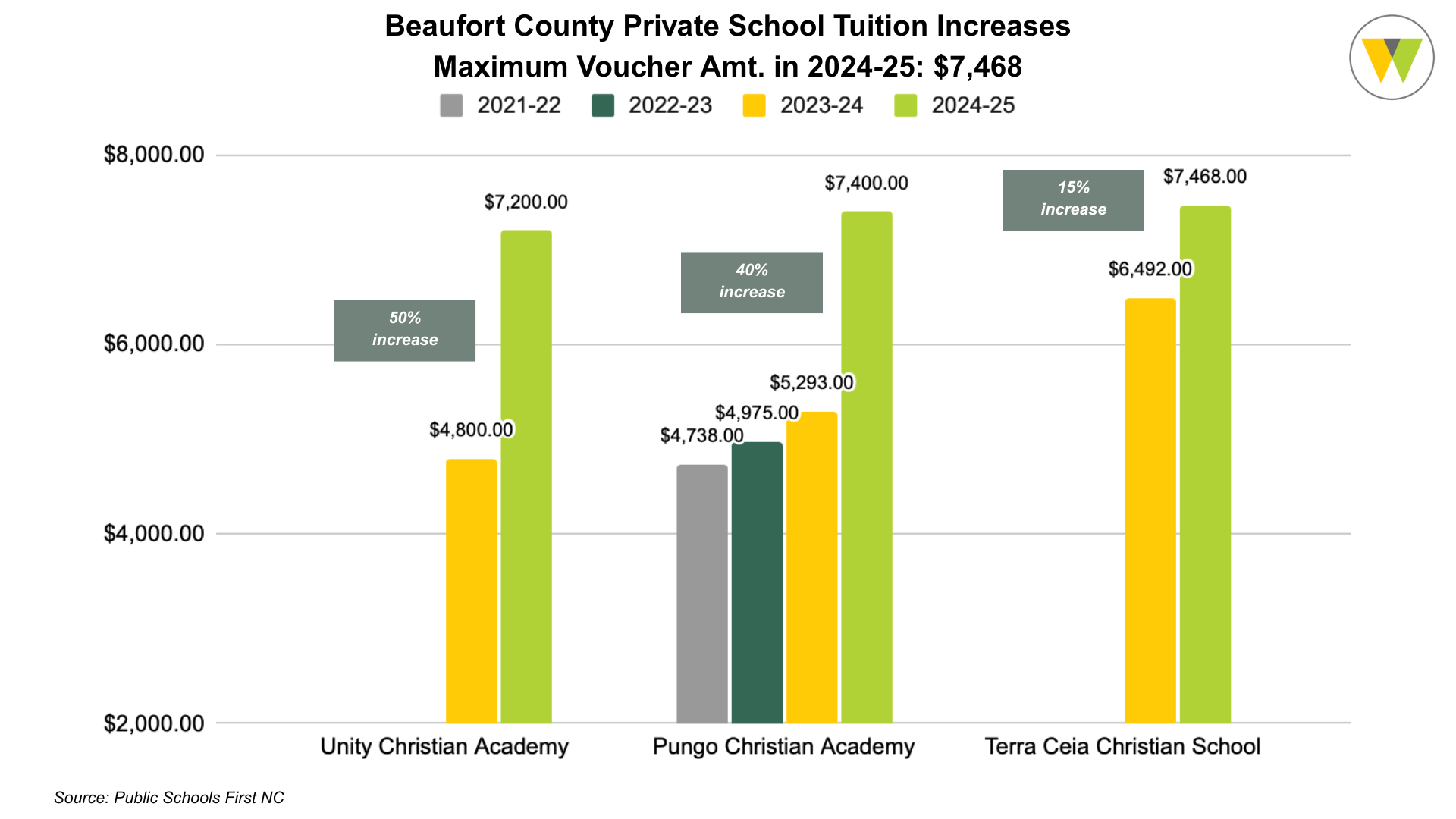By Heather Koons
RALEIGH (March 29, 2025) – Public school districts across the state are working through their budget planning for next year facing threats of looming budget shortfalls expected from the loss of federal funds and the revenue shortfalls predicted at the state level. Some, like Wake County, which announced a hiring freeze earlier this month, are already taking measures to cut costs.
Wake County’s Board recently heard a presentation from staff that proposes $18.4 million in cuts for next year. As part of the cuts, the county may eliminate employer contributions to employee dental insurance. The county is also looking to reduce maintenance spending even though it has a $600 million backlog of maintenance needs and broken HVAC systems have caused several schools to lose instructional time when students had to be sent home early.
In January, Buncombe County and Asheville City Schools lost $4.7 million in local funding from county commissioners due to revenue shortfalls caused by Hurricane Helene.
Winston-Salem-Forsyth is cutting $8 million in the current school year and plans to cut $16 million more next year.
Charlotte-Mecklenburg is juggling the loss of federal ESSER funds and other federal cuts along with a need to raise teacher pay to attract and retain quality educators.
Looming over budget considerations for public schools across the state is the executive order recently signed by President Trump to dismantle the U.S. Department of Education. With about $1.5 billion coming from federal funds annually, districts have a lot to lose if the new administration decides to cut all of its current programs. Teacher education programs in the state have already lost more than $90 million in federal grants in an early round of cuts just days after Secretary McMahon was confirmed.
In a sharp contrast to the belt-tightening at public schools across the state, private schools are experiencing a gold rush thanks to the voucher expansion passed in 2023 and funded to the tune of $616 million in 2024-25.
According to a recent presentation by the NC Fiscal Research Division, the base budget appropriation for the state’s two voucher programs in 2025-26 is $731 million.
By making vouchers available to all families regardless of whether the student has ever attended a public school, the NCGA added a new burden on its taxpayers—paying for private school tuition. According to the state constitution, the legislature is responsible for funding a system of PUBLIC schools, NOT private schools.
Some private schools have taken full advantage of the state’s generosity by raising tuition prices and (strongly) encouraging the families of all students to apply for a voucher regardless of income level or financial need.
For example, in Beaufort County, the three voucher-accepting private schools all raised tuition to closely match the maximum voucher amount: $7,468/student. Tuition was much lower in the years leading up to the big expansion.
• Unity Christian increased its tuition from $4,800 in 2023-24 to $7,200 in 2024-25, a 50% increase.
• Pungo Christian Academy had increased its tuition $237 in 2022-23, then $31 in 2023-24 and a whopping $2,107 in 2024-25 once vouchers became universal.
• Terra Ceia’s 2023-24 tuition was aligned with the 2023-24 maximum voucher amount, so its year-over-year increase was 15%.
As a result, the state funds going to these schools increased dramatically. Pungo’s voucher funds grew 549% – from $162, 577 in 2023-24 to $1,054,830 in 2024-25.
In Wake County, where tuition is often far higher for private schools, St. David’s provides a striking example of how the state is subsidizing tuition increases. The school’s average tuition was $24,521 in 2022-23 and $25,769 in 2024-25. The $1,238 average one-year increase was just 5%, but the dollar amount is far less than the $3,360 voucher that the highest income families (making $260,000/year or more) receive.
In 2023-24, St. David’s enrolled zero voucher-receiving students, probably because all families were too wealthy to qualify for a voucher. With the income cap lifted, St. David’s has received $1,144,362 in taxpayer-funded vouchers in 2024-25 as of February.
Public Schools First has compiled data on the funds received by each voucher-accepting school in the state since the Opportunity Scholarship program started in 2014. Take a look at this and other resources on our website and share!
Private schools have no accountability for how taxpayer funds are used. As the data show, many schools are taking advantage of the NCGA’s massive expansion by increasing tuition to maximize revenue. Even schools that primarily or exclusively serve wealthy families are receiving tax dollars.
While public school districts are struggling to fix their HVAC systems, the NC General Assembly has chosen to subsidize private school tuition!


Leave a Reply